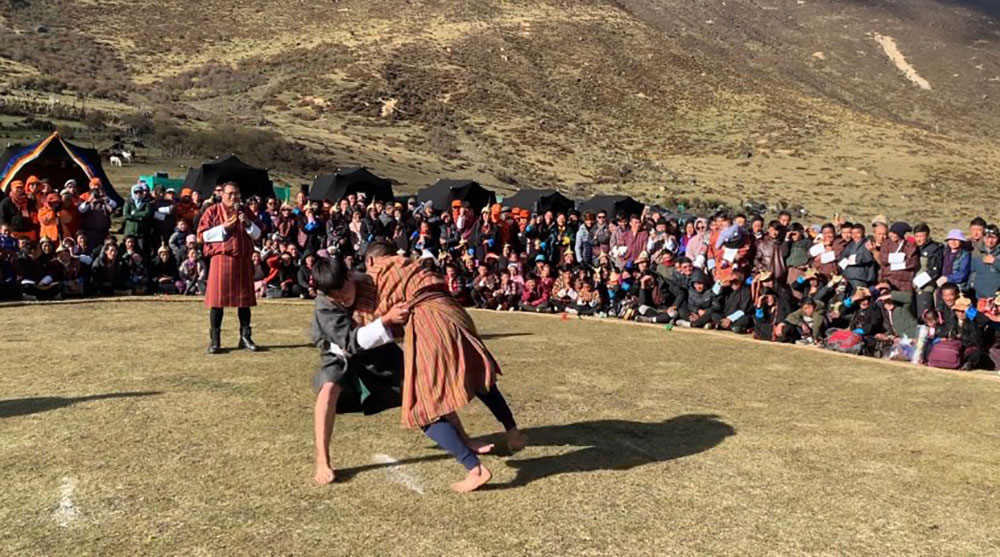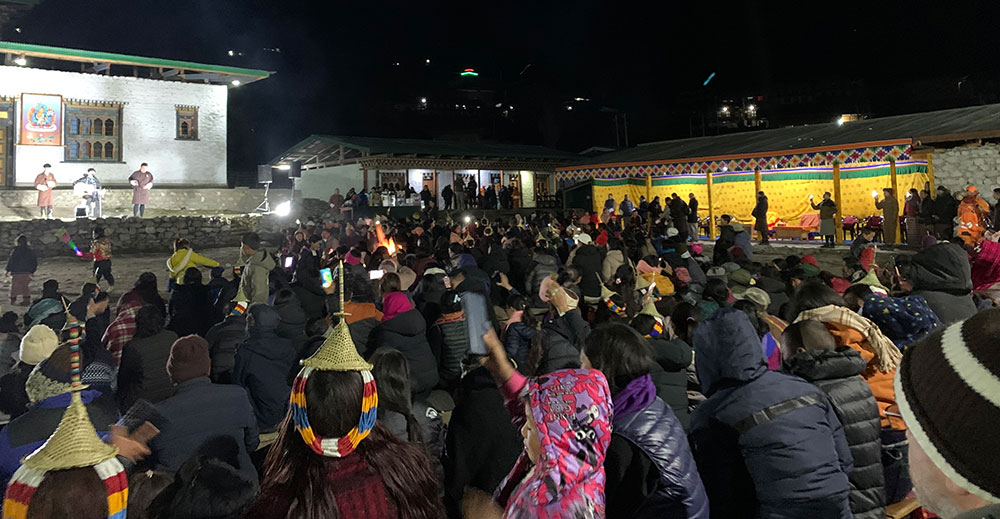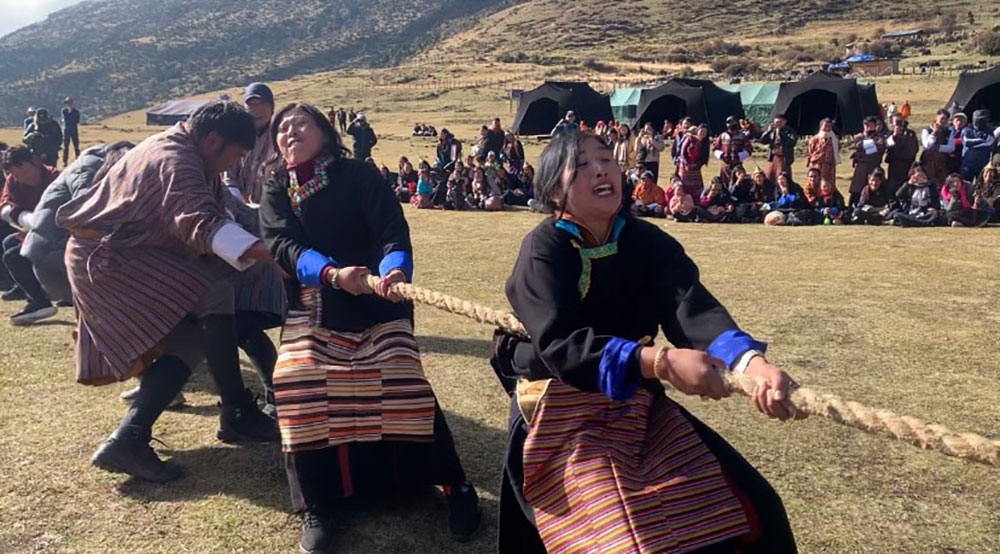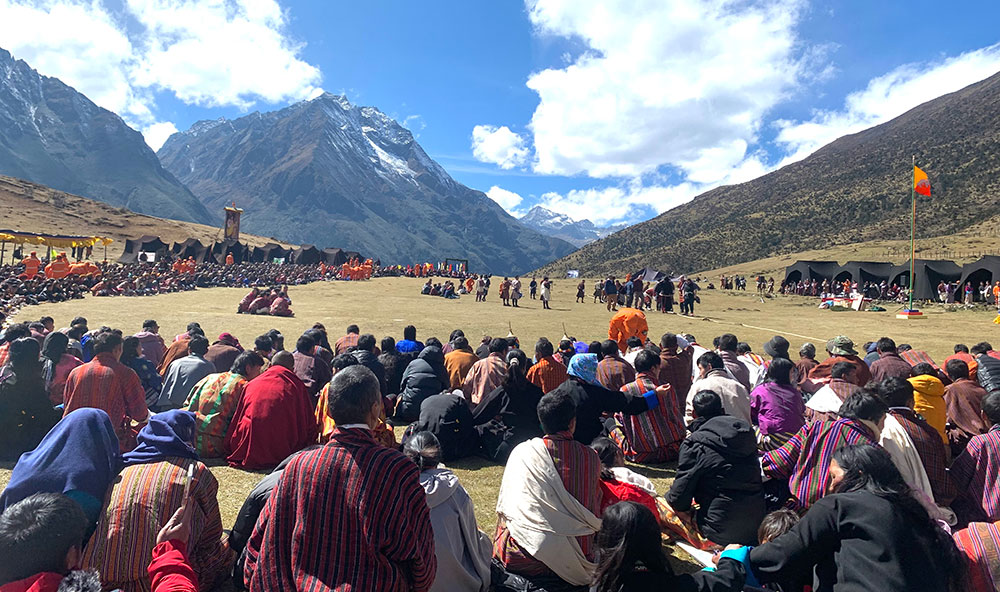Yangyel Lhaden
A day before the Royal Highland Festival, a young Layap man is sitting on a windowsill, basking in the sun, gazing at the village below and the snowcapped mountains.
“Please, azha, let me go to the festival,” he pleads.
Just a few metres before reaching Langothang, where the Royal Highland Festival is hosted, there are two traditional houses. One is a police station.
The young man had picked a fight with another man the previous night and was detained by the police. The villagers refer to the police as Azha.
“I regret the incident,” the man says. “I don’t want to miss the festival; I want to see His Majesty The King.”
Today, there is rehearsal and selection of participants for the final round of local sports during the festival at Langothang.
Dressed up in their local attire, villagers start hiking to the hilltop in early hours of the morning.



At Langothang, the spectators cheer for their representatives from the villages and have fun at the stalls. After the rehearsal they go back. Tonight, there is a movie screening at the school.
“I am going early; it is hard to get a seat,” Pego, a Layap, says. She goes with her mother-in-law and her three-year-old daughter.
The movie hall is timming with people. Many are standing, some are hanging on the windowsills. The spectators laugh and cheer along with the movie. De-suups pour hot porridge for the audience.
On the two-day festival, Laya hosted more than 2,000 visitors.
For three days, every time events at Langothang ends, people gather at the school where there is a bon-fire, music, and movie screening.
Famous artists from the Bhutanese music industry entertain the public and de-suups go around pouring hot ara. This time around nights in Laya can be very chilly.
Among the crowd, a lively Layap woman claps and sings along with the artist. But, she says, “I may look happy but I have mountain full of sorrows and problem.”
Sighing, she shares her story.
She was sexually harassed when she was 11 years old while herding her yaks in the mountains. She had a miscarriage when she was five-months pregnant and went through a bad divorce. “My late sister’s last words for me were to take care of her daughter.”
But, tonight, she will have little fun. “During the festival even if it is just for few days, I forget all the problems I have.”
In the crowd I notice the man who was pleading with the police.
“I cannot miss this festival by any means; I am on bail,” he says.
The event ends by 10pm and people are either going home or going to restaurants and bars in the villages.
In one of the restaurants there is a group of Layap men and visitors. Sonam Phuntsho, a Layap, is busy engaging with the guests.
“It is sad that most people will leave tomorrow,” Sonam Phuntsho says. “When people suddenly leaves, the village becomes empty.”
Like Sonam, his friends say that they are thankful for the festival that bring people from all parts of the country and abroad in Laya.
“Can’t you guys stay a few more days? asks Sonam. “You do not have to worry about anything.”
But the guests will have to go. As guests leave the restaurant, Sonam and his friends start singing:
“Majo, majo, chhoe tshu gi ko zha bay…”


